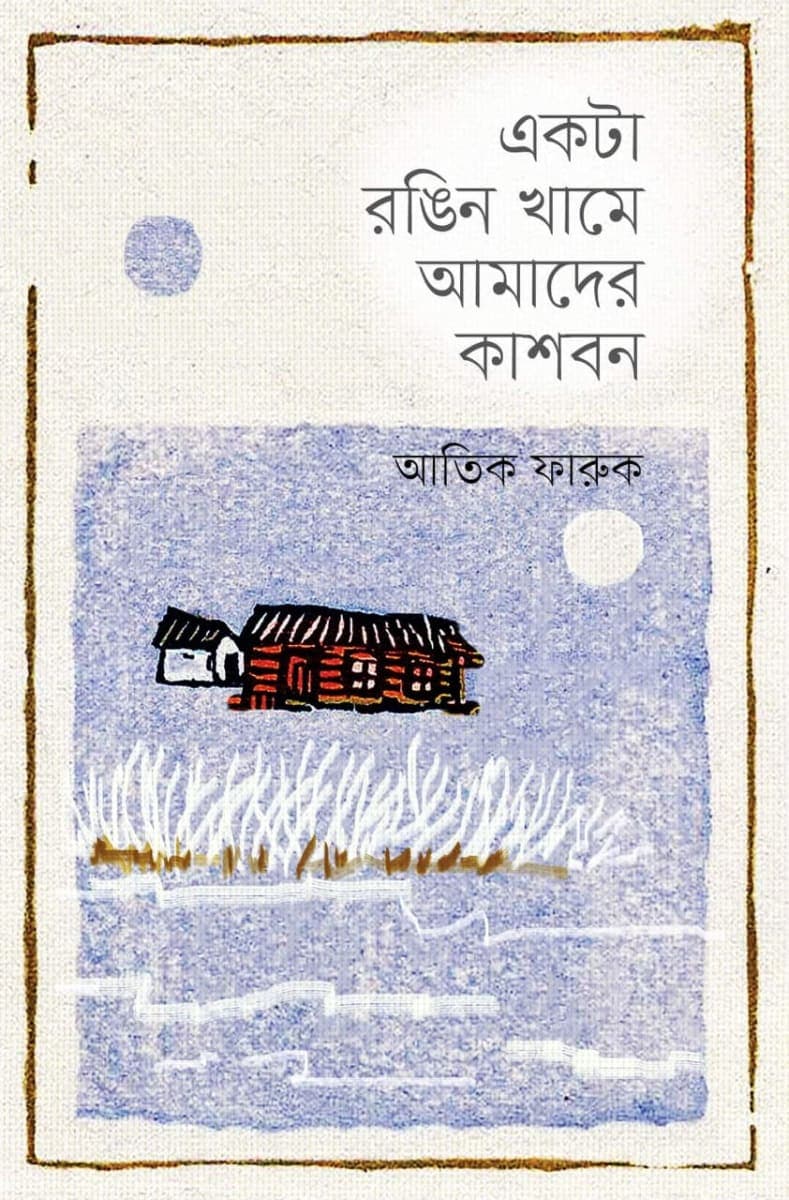After a long day's journey, by road and sea, the weight of the world seemed to wrap itself around us like a heavy cloak. Reluctantly, we had come here—though the sight of the setting sun on the vast horizon of the afternoon lagoon stirred a quiet pride in my heart. Our ship, after much effort, brushed against a green island, and suddenly, the thirst in my parched throat was quenched. What a strange and enchanting green island it was! Soon, we were told to board a small red boat, just a few yards from the sea, as the ship was too fragile to take us to the shore. We huddled together, nearly a hundred of us, on that little red boat. The day’s end reflected in the gentle smiles of those waiting, like the final glow of sunset spreading across the sea's horizon. As we disembarked, we were informed that we would need to cross a long bridge to reach the main road, where vehicles would await us. Yet, despite this, the frustration I had harbored towards Fazal and Fahim still lingered. We had left Dhaka bound for Cox's Bazar, but plans had shifted, and now we were in Sandwip. My opinions had been dismissed, and thus we had taken this detour. After a grueling, dust-covered journey on broken roads, we finally reached Kumiraghat, where I could, at last, breathe a sigh of relief.
2.
We were guests of Aziz Bhai—our classmate from the first and second year at Darul In'am. Life had taken a turn for him, and now he was teaching orphaned children in a secluded Noorani Madrasah, hidden away in Kalapaniya Union, Sandwip. He had sent a biker to fetch us. Bikes, as we learned, were one of the primary modes of transport on this island of three hundred thousand people. We piled onto the bike, and as the sun descended in the west, it greeted us with a warm and forgiving light. The island, bathed in the soft glow of the setting sun, was slowly lighting up house by house with solar power. It was as though this island, with its indescribable charm, had washed away all the anger in my heart. Quietly, I thanked Fazal and Fahim.
3.
As the Maghrib call to prayer echoed across the island, we arrived at Sandwip Mahila Madrasah. A massive three-story building, painted white, stood before us, surrounded by a vast field of lush green grass. I stood at the field’s edge and called out to Aziz Bhai. Within minutes, a figure emerged—thin and worn, with shoulder-length curly hair like a lion’s mane. It was Aziz Bhai. I embraced him, overwhelmed by the years that had passed since we last met. Time had weathered him, his once youthful face now bearing the marks of life’s storms. Circumstances had drawn him away from his family and education, bringing him to this remote island in the Bay of Bengal, where he now dedicated himself to teaching the faith to young children.
4.
The madrasah was a humble, tin-roofed structure with four modest rooms. Beside it stood an unfinished mosque, half-built and abandoned, while a small lake shimmered in the distance, the moonlight gently kissing its waters. Inside, young children recited 'Surah Waqiah' in unison, their voices rising together in the stillness of the night. Having left behind the bustling chaos of Dhaka, I found it hard to believe we were now on this quiet, faraway island. After performing ablution for the Maghrib prayer by the lakeside, Fahim led the prayer, and our discussions carried on until Esha. Later, we headed to the local market mosque for the Esha prayer. The people of Chittagong, known for their generosity and strength, now revealed their immense hospitality. After the prayer, Aziz Bhai introduced us to a few familiar faces. One man, with a voice as strong as his heart, insisted we stay at his home and dine with him that very night. Though we gently declined, explaining our need for rest, he left us reluctantly, his heart heavy. This, I thought, is the true essence of human love—if only such affection filled every heart, the world would wrap itself in the warmth of brotherhood. How beautiful the world could be then.
5.
As we walked along the winding road, rows of tall betel nut trees stood on either side, their rustling leaves filling the air with a serene solitude. The quietness around us was profound, broken only by the soft jingle of distant sounds. The sky hung low, and though the moon was absent, the stars sparkled brightly above. A gentle breeze brushed against us, carrying with it a sense of wonder. I still couldn’t shake the feeling of being in a dream. Here we were—on an island, encircled by the endless embrace of saltwater, a world unto itself.
We had arrived in Kalapaniya Union, home to nearly nineteen thousand souls. Nestled in the northwest corner of Sandwip Upazila, the union stood about 14 kilometers from the upazila center. To the north lay Santoshpur and Amanullah Unions, while the southern edge was cradled by Bauria Union, Sandwip Municipality, and Harishpur. And to the west, the endless Bay of Bengal stretched out beyond the horizon, its waters lapping gently at the island’s shores.












